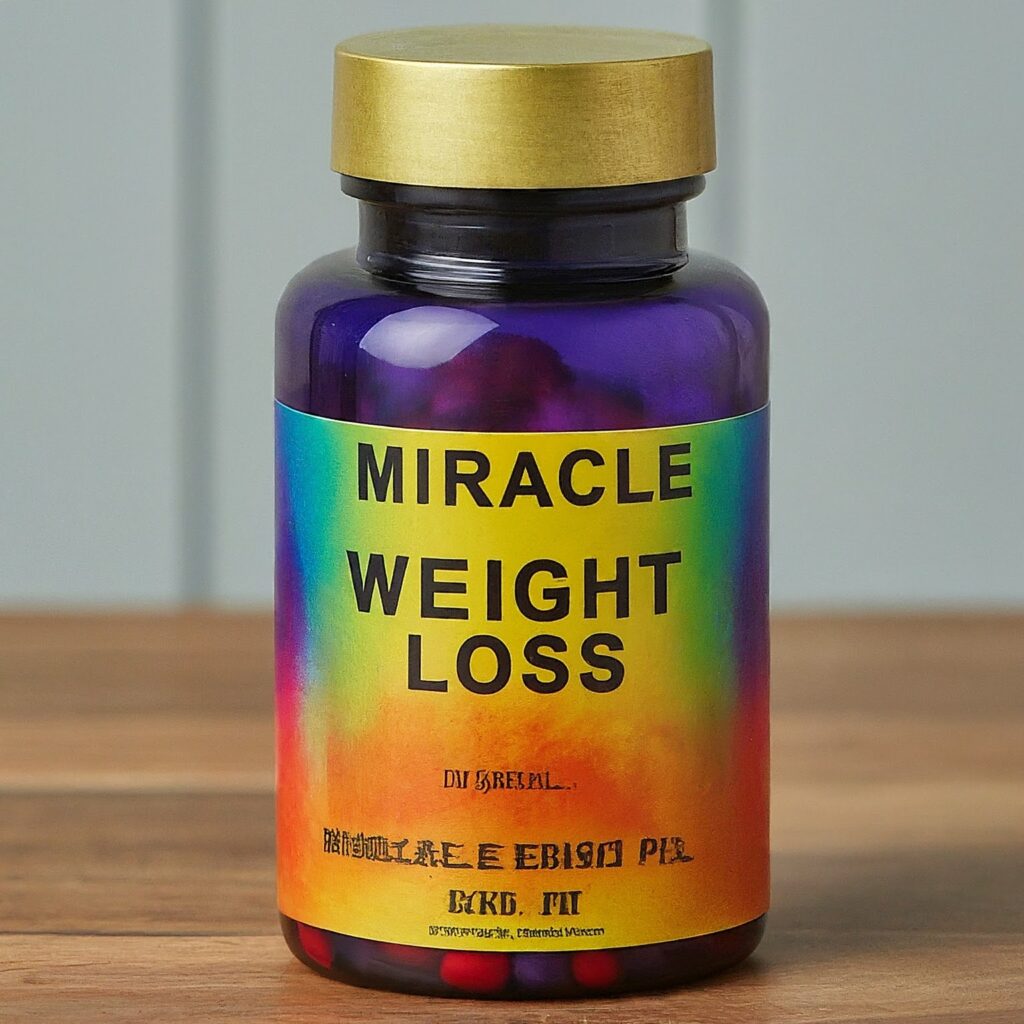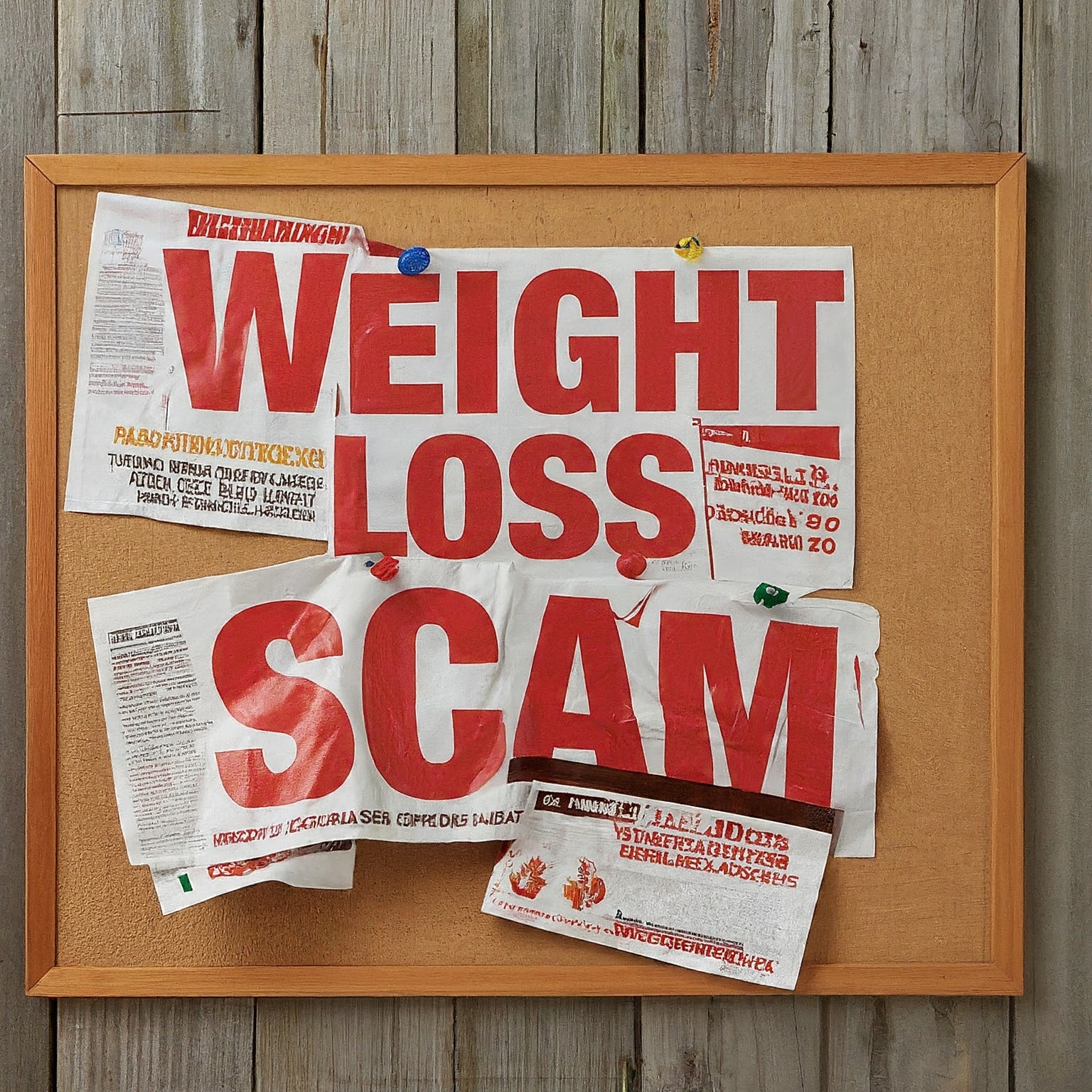Ever feel overwhelmed by the sheer number of weight loss products and programs out there? You’re not alone! The internet and media are flooded with promises of quick fixes and effortless weight loss. But let’s be real, some of these claims sound too good to be true, and often, they are.
This article is your guide to becoming a savvy weight loss consumer. We’ll equip you with the knowledge to spot the red flags and avoid falling prey to weight loss scams.

Why Weight Loss Scams Thrive
Weight loss scams prey on our desires for a quick and easy solution. We all want to see results fast, and these scams exploit that by making unrealistic promises. Let’s face it, achieving sustainable weight loss often requires effort and lifestyle changes, which isn’t as flashy as a magic pill or a one-week detox.
Red Flags to Watch Out For: The Tell-Tale Signs of a Weight Loss Scam
Here are some key warning signs to keep an eye out for:
- Miraculous Claims: Does a product guarantee you’ll lose 10 pounds in a week? Yeah, red flag city. Sustainable weight loss is about healthy habits, not magic potions.
- Before and After Photos (Without Context): Be wary of dramatic before and after photos used to promote a product. These photos can be easily manipulated and often lack context about the person’s overall journey, including diet and exercise changes.
- Celebrity Endorsements: Just because a celebrity is endorsing a weight loss product doesn’t mean it’s legitimate. Celebrities might be paid to promote something they don’t even use themselves. Do your own research before buying into the hype.
- Free Trials with Hidden Costs: Free trials can sound tempting, but be sure to read the fine print. Some “free” trials automatically enroll you in a subscription with recurring charges.
- Testimonials That Seem Too Good to Be True: Be skeptical of overly glowing testimonials. They might be fabricated or written by people affiliated with the company.
- Quick Fixes and Easy Solutions: If a product promises effortless weight loss with no lifestyle changes, steer clear! Sustainable weight loss is about developing healthy habits, not quick fixes.
Empowering Yourself: How to Find Reliable Weight Loss Information

Instead of falling prey to scams, here are some resources to help you on your weight loss journey:
- Consult a Registered Dietitian (RD): An RD is a qualified healthcare professional who can create a personalized plan based on your individual needs and health goals.
- Research Reputable Websites: Look for websites from health organizations like the National Institutes of Health (NIH) or the Centers for Disease Control and Prevention (CDC). These sites offer evidence-based information on weight loss.
- Talk to Your Doctor: Your doctor can assess your overall health and provide guidance on safe and effective weight loss strategies.
Remember: Weight Loss is a Journey, Not a Destination

There’s no one-size-fits-all solution to weight loss. It takes time, effort, and a commitment to developing healthy habits. Don’t be discouraged if you don’t notice results immediately. Be patient, celebrate your progress along the way, and focus on making long-term changes that improve your overall health and well-being.
The Takeaway: Be a Smart Consumer!

By learning about weight loss scams and taking control of your research, you’ll be well on your way to achieving your weight loss goals in a healthy and sustainable way. Remember, it’s about making informed choices and developing habits that work for you, not falling prey to empty promises. Now you have the power to navigate the weight loss world with confidence and find the path that leads to a healthier, happier you!
